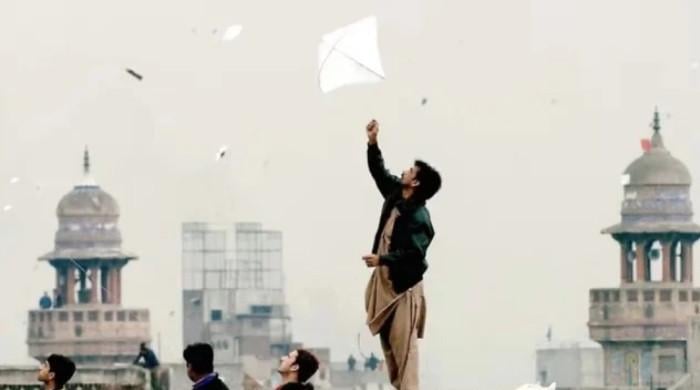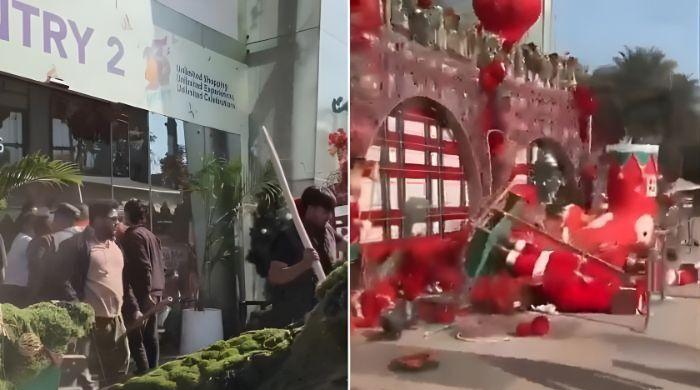Residents of Hazara division forced to use unsafe chairlifts
The Hazara division is also counted among such under-developed areas, where the people are compelled to use extremely unsafe, locally made chairlifts for travelling
October 27, 2016
BATTAGRAM: Although it is said that the urban areas of Pakistan are developing rapidly, with motorways, metalled roads and flyovers and what not being constructed. But residents in the country's rural north are still forced to live in a state of distress.
The Hazara division is also counted among such under-developed areas, where the people are compelled to use extremely unsafe, locally made chairlifts for travelling.
Several rural areas of this division are located in the midst of lofty mountains, spillways, and across the streams and rivers. The locals, for crossing these rivers, streams and mountains, have installed these unsafe chairlifts, as there is no other means for moving from one place to another.
While, in some areas, these chairlifts are moved through hands over wooden planks joined with ropes.
These names for these lifts vary from area to area. Somewhere, these are called Doli, while in others they are known as trolleys. The Pashto-speaking people have named Zaango.
But, the moment of concern is that there is no system available in the Khyber Pakhtunkhwa province for the monitoring and inspection of these lifts.
"There is no such institution here which could monitor, inspect or control these chairlifts," says tehsil nazim Battagram, Niaz Khan Tarand. "Neither the district government does anything to regulate these lifts, nor the town municipality or anyone else."
Dozens of precious lives have been lost in incidents involving these chairlifts, due to the absence of check-and-balance system. Similarly, men, women and children have to wait for hours, several hundred meters above the ground, in case the lift develops a technical fault.
When would these people be provided adequate transportation facilities? It depends upon the will of those at the helm to resolve the issues of the people.









